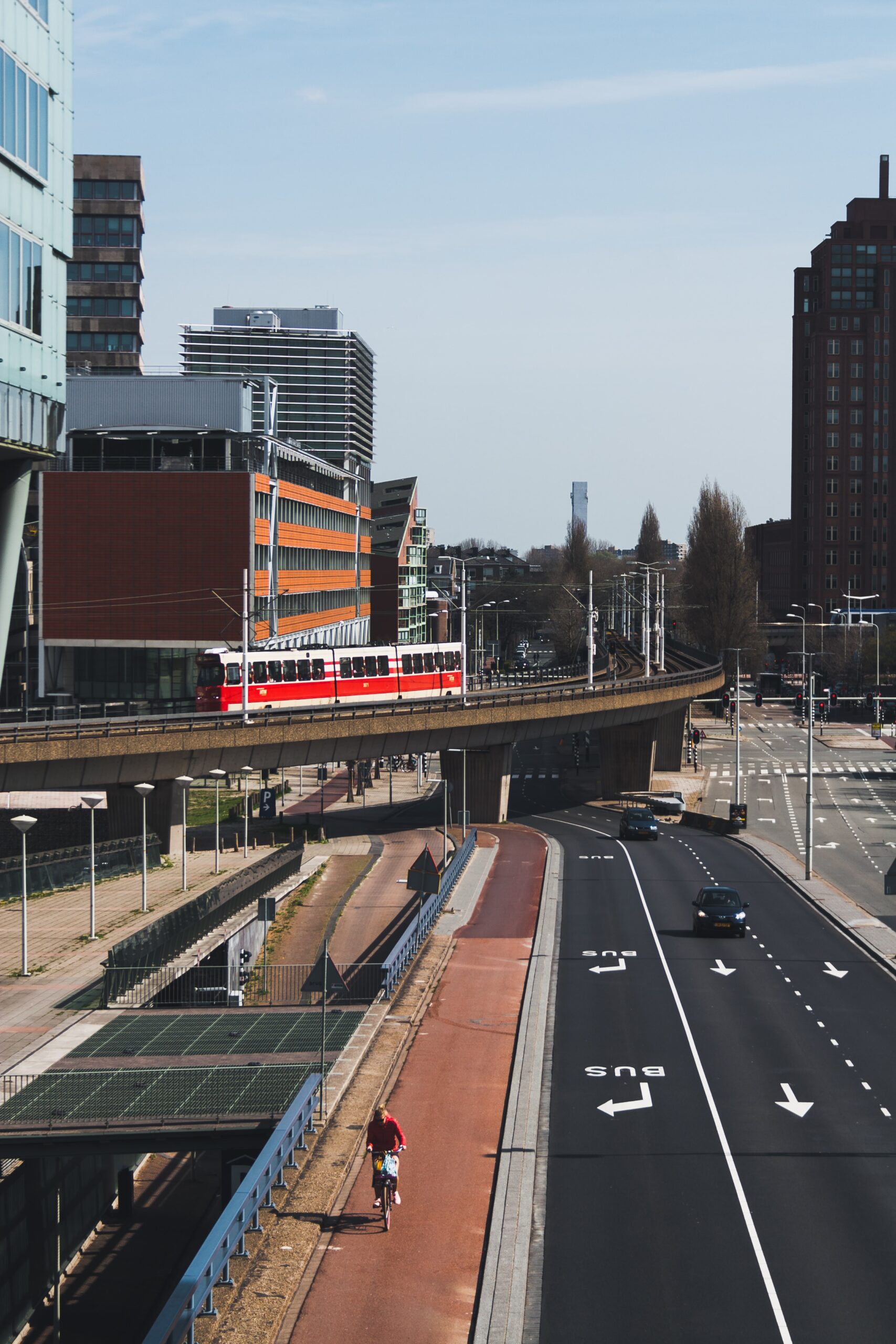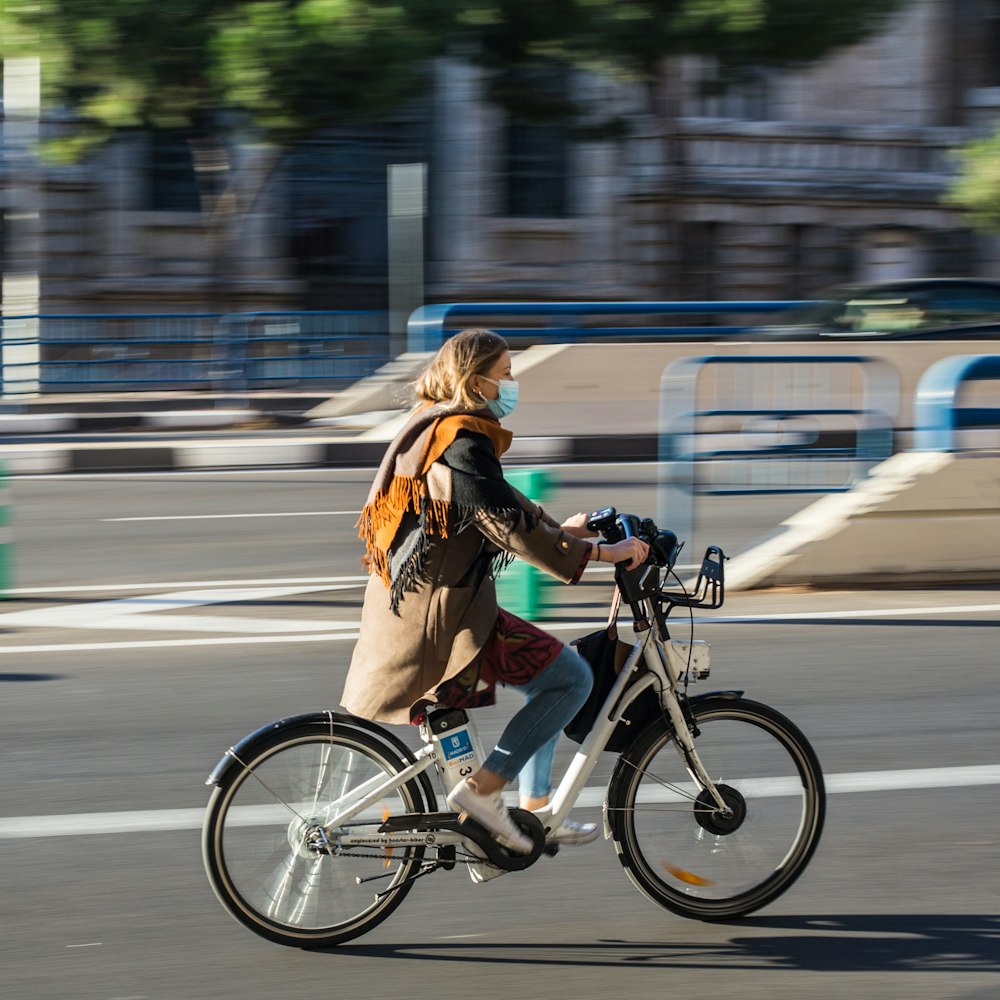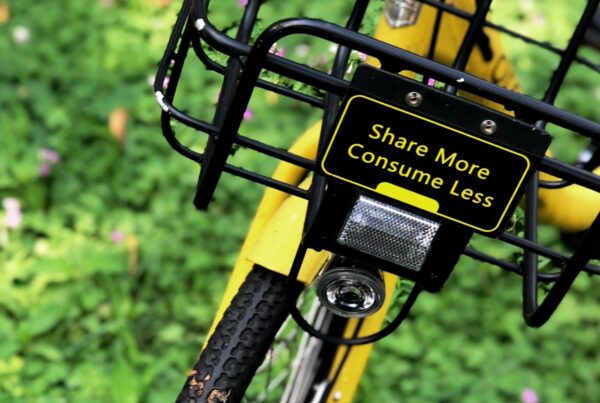By: Ellen Partridge and Hani Shamat
Here is our year-end sampling of initiatives and ideas within the legal infrastructure of shared mobility that inspired us this year. We hope to build off of these trends with action and accountability through the Shared Mobility 2030 Action Agenda.
Trains over planes
France made history in 2022 by banning short-haul plane flights as one way to curb carbon emissions. As of December 2022, travelers can no longer take domestic flights to destinations that can be reached within 2.5 hours by train. This policy will not only help reduce greenhouse gas emissions, but will encourage travelers to experience France’s beautiful countryside by rail.
People over parking
San Jose, California, became the largest city in the country to abandon parking minimums. On the other side of the country, Washington, D.C. employers that offer free or subsidized parking to their employees must make one of three choices starting in 2023: either offer a Clean Air Fringe Benefit (paying employees who give up their parking space), develop a Transportation Demand Management plan, or pay a Clean Air Compliance fee of $100 per employee per month. The city anticipates that these requirements will help commuters make more sustainable travel choices, a notion that has been backed up by research. Outside of the U.S., Berlin is kicking 2023 off by allowing bikes, scooters, and mopeds to park for free in car parking spaces, even if those spaces usually charge for cars. Amsterdam announced plans to decrease inner-city parking spaces by more than 11,000 by the end of 2025. Parking policies like these help turn the tide to make cities friendlier for bicyclists, shared mobility, and pedestrians.
Money to boost biking
Various cities and states offer rebates to bike or e-bike purchasers (particularly notable is Denver’s $1,700 rebate). Chicago is taking it one step further and running a program to give away 5,000 bikes and maintenance equipment to eligible residents by 2026. Bike incentives exist in Europe as well. France is offering up to €4,000 for residents to swap their cars for e-bikes. And purchase rebates aren’t the only way to boost biking; in Belgium, commuters are eligible for a tax discount of €0.25 for every kilometer of biking to their workplace.
Equity focus in zoning
Cities are starting to address equity with new zoning policies–a stark contrast to some older policies. The San Francisco Board of Supervisors recently approved a bill allowing for more density in new residential construction projects in the city. Much of San Francisco is zoned for single-family housing, contributing to skyrocketing housing costs. This bill allows for four-unit dwellings to be built on any residential lot, and six-unit dwellings on corner lots. In Florida, the Gainesville City Commission voted to eliminate single-family zoning throughout the city. Though the move faced abundant opposition, proponents hope the change will make housing more affordable and alleviate gentrification.
Equity focus in TOD
Keep your eye on this Chicago innovation: ETOD or Equitable Transit Oriented Development brings an equity perspective to the benefits of transit oriented development. Chicago’s City Council adopted a zoning ordinance in July, dubbed “Connected Communities,” which makes denser developments near transit hubs (including some high-frequency bus corridors) easier to build, makes deconversions (e.g., turning a three-flat into a single family) harder to do in high-cost neighborhoods, increases incentives for building affordable units, and encourages safer streets everywhere. Bike parking is required in some developments and car parking is subject to default maximums. Pedestrian friendly design principles, including limits to curb cuts, apply near rail, and large developments must submit transportation management plans.
Zero-fare transit
More and more agencies are experimenting with getting rid of transit fares. During the COVID-19 pandemic, a number of agencies used relief funds to make their service zero-fare. Some of them, like Charlottesville Area Transit, have extended their zero-fare pilots into 2023 and beyond. Zero-fare can help us get closer to zero-carbon transportation.
Vehicle taxes based on weight and emissions
It is no surprise that heavier vehicles tend to have a bigger impact on the environment than lighter vehicles. Larger and heavier cars are less aerodynamic, less efficient, and require more powerful engines, which leads to more fuel and more carbon emissions. An additional tax on vehicles by weight can incentivize more efficient transportation choices. France already has such a tax, charging €10 per kilogram on any new or imported cars weighing more than 1,800kg, and others are considering higher fees for heavier vehicles.
Shopping incentives
In stores, malls, and offices throughout the country, parking “validation” is used as a tool to make trips more convenient for customers and encourage patronage. But why should people be rewarded for visiting a business only if they do so by car? To promote alternative modes of transportation, businesses should consider similar subsidies for other modes – for example validating a bus pass – or offering rebates for not using a retail parking lot. OK, we’re still looking for this one! Send us any examples you know about.
Make it easier to live car-free
California’s legislature passed a bill in September to incentivize residents to live car-free. As part of its climate-related initiatives, the bill offered low-income Californians a $1,000 tax credit for not owning a car. Though the bill was ultimately vetoed by Gov. Gavin Newsom, it shows that some jurisdictions are seriously considering ways to promote more sustainable and equitable transportation.
Build on the IRA
Even though the Inflation Reduction Act (IRA) is the most monumental infrastructure law in a generation, it is still a monument to cars. Transforming transportation means more than converting gas cars into electric cars and continuing to drive the same way using the same car-centric infrastructure. Even AI like ChatGPT understands that. With climate change turning summer into “danger season,” it is clear that we need more – more of the innovations in government noted here, and more infrastructure that makes shared and active modes of transportation easier than using a car – to fight climate change, promote equity, and strengthen community.





